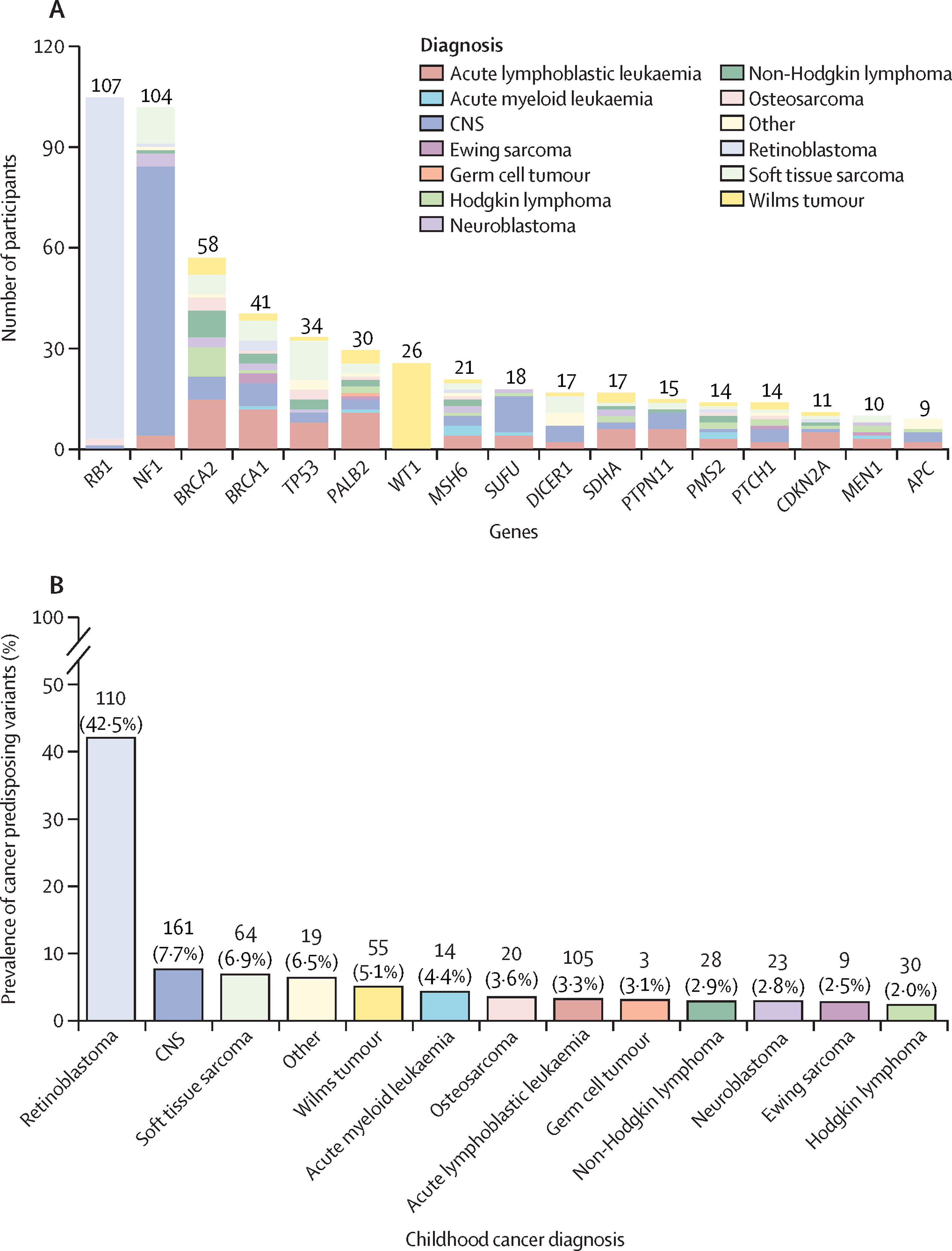- Chen C, Qin N, Wang M, Dong Q, Tithi SS, Hui Y, Chen W, Wu G, Kennetz D, Edmonson MN, Rusch MC, Thrasher A, Easton J, Mulder HL, Song N, Plonski NM, Shelton K, Im C, Ehrhardt MJ, Nichols KE, Leisenring WM, Stratton KL, Howell R, Yasui Y, Bhatia S, Armstrong GT, Ness KK, Hudson MM, Zhang J, Wang H, Srivastava DK, Robison LL, Wang Z. Cancer germline predisposing variants and late mortality from subsequent malignant neoplasms among long-term childhood cancer survivors: a report from the St Jude Lifetime Cohort and the Childhood Cancer Survivor Study. Lancet Oncol. 2023 Oct;24(10):1147-1156. doi: 10.1016/S1470-2045(23)00403-5. PMID: 37797633.
Paediatric cancers: genetics and late mortality
Paediatric cancer patients carrying certain gene variants seem to have higher risks of developing subsequent malignancies and malignancy-related mortality.
Life after paediatric cancer treatment
Despite significant advances in paediatric cancer treatment, paediatric cancer survivors face ongoing challenges in terms of morbidity and mortality. In particular, these patients have a nine times higher risk of death than the general population of the same age and sex. Mortality among childhood cancer survivors is influenced by a number of factors, including subsequent malignancies, which are a major cause of death in long-term patients.
In the past, a group of researchers at St. Jude Children's Research Hospital had conducted a study analysing cancer-predisposing genetic variants in paediatric cancer survivors. They had found that carriers of such variants had an increased risk of developing subsequent malignancies, regardless of the cancer therapies administered.
However, they had not shown whether those variants had an impact on mortality related to subsequent malignancies. In this new study published in The Lancet Oncology, the authors comprehensively examine this aspect, providing important new information. The results emphasise the importance of genetic assessment in identifying patients at risk and implementing personalised cancer prevention and surveillance strategies to reduce the burden of long-term mortality related to subsequent malignancies in paediatric cancer survivors.
Data from over 12,000 patients
This study used data from two retrospective cohorts of patients who had survived paediatric cancer for at least 5 years. The SJLIFE (St Jude Lifetime Cohort) cohort includes patients treated at St Jude Children's Research Hospital between 1962 and 2012, while the CCSS (Childhood Cancer Survivor Study) cohort includes patients treated at 31 institutions in the US and Canada between 1970 and 1999.
Genetic data were analysed to identify cancer-predisposing genetic variants in a set of 60 genes known to play a role in cancer predisposition. The primary outcome of the study was late mortality, defined as mortality from the time the biological sample was first collected until the end date of the study.
Increased likelihood of developing subsequent high-grade malignancies
- Whole genome or whole exome sequencing data were available for a total of 12,692 participants.
- Overall, 5.1% of the 12,469 participants carried cancer-predisposing variants.
Photo Credit: The Lancet Oncology
The distribution of primary cancer types among the participants with the 17 most frequently involved genetic variants is shown in figure A. The prevalence of carriers of cancer-predisposing variants varies according to the type of childhood cancer diagnosed among the participants, as shown in figure B.
- Overall, 1157 participants developed subsequent malignancies. Of these, 83 were carriers of cancer-predisposing variants. Carriers of cancer-predisposing genetic variants were more likely to develop high-grade subsequent malignancies (CTCAE grade ≥4). The most common subsequent malignancies were breast cancer (21.5% of subsequent malignancies) and thyroid cancer (19.3%).
- A total of 263 deaths related to subsequent malignancies occurred. The most common cause of death related to subsequent malignancies was tumours of the central nervous system (17.9%). In general, mortality related to subsequent malignancies was higher among carriers of cancer predisposing variants than among non-carriers in both cohorts.
Genetics explains the mortality risk for a second cancer in paediatric cancer survivors
The results of this study provide compelling evidence of the association between cancer predisposing genetic variants and a significant increase in long-term mortality related to malignancies in paediatric cancer survivors. These findings highlight the importance of considering both genetic susceptibility and therapeutic approaches in the clinical management of these patients.
The evidence underlines the importance of understanding genetic inheritance in paediatric cancer patients. Moreover, carriers of these variants were more likely to develop subsequent high-grade malignancies, which could influence disease severity and management. This finding suggests that patients carrying these variants require closer surveillance and more aggressive prevention strategies.
An interesting aspect of this study concerns the analysis of treatments. The results indicate that the association between cancer-predisposing genetic variants and mortality related to subsequent malignancies is particularly strong in patients who receive no or little thoracic radiotherapy. By contrast, in patients receiving higher doses of radiotherapy, this association appears to be attenuated. This suggests that high-dose radiotherapy may mask the effect of cancer-predisposing genetic variants on the risk of developing subsequent malignancies.
This study paves the way for further research on identifying patients at risk and implementing personalised strategies to improve clinical management and reduce long-term mortality related to subsequent malignancies in paediatric cancer survivors.
